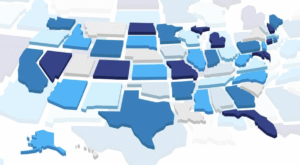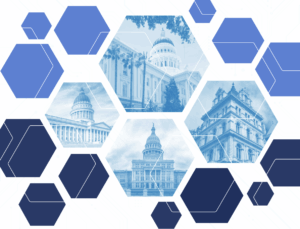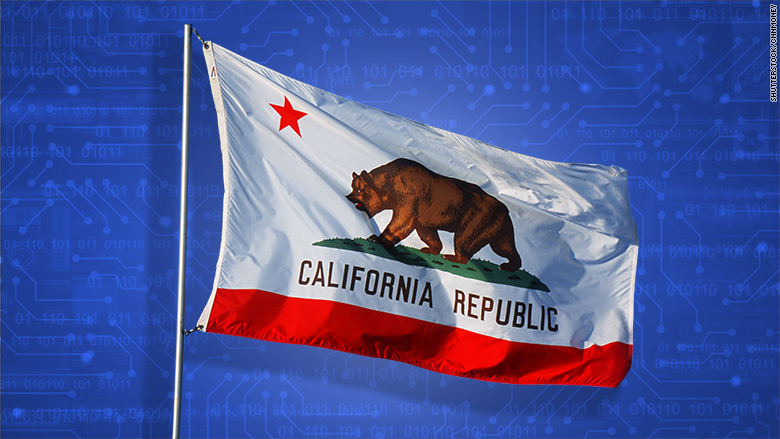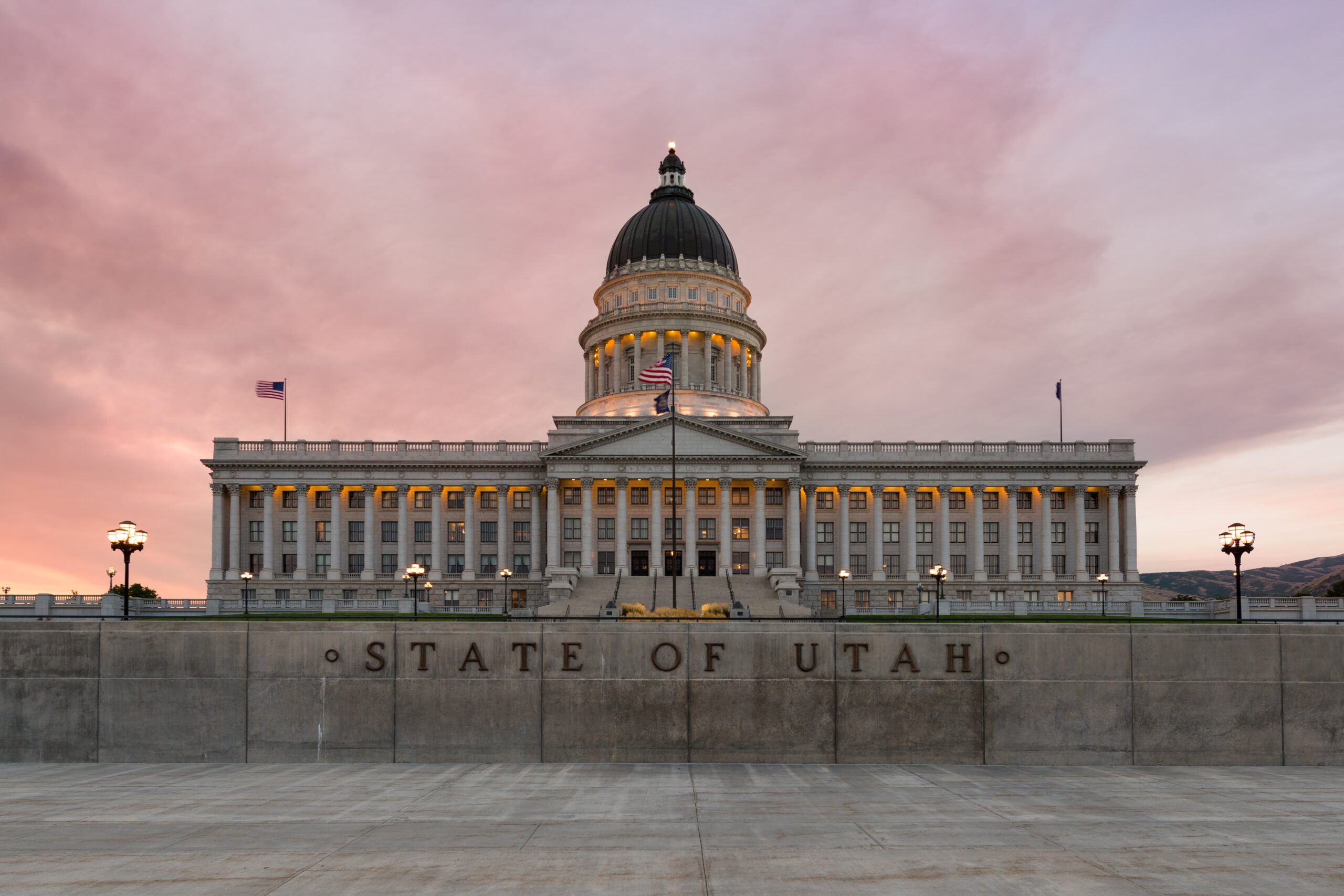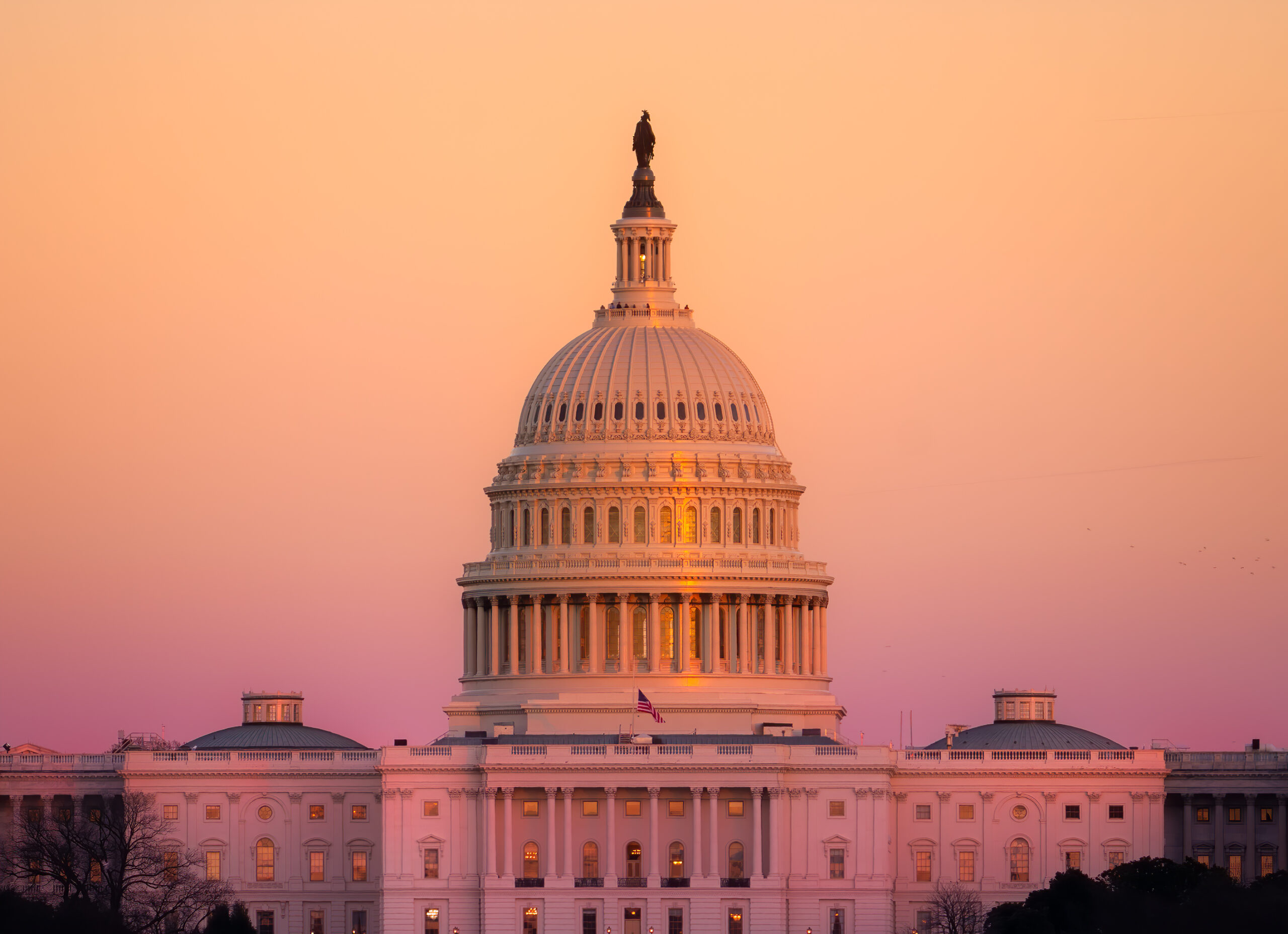Across the United States, evolving data collection and processing practices are driving digital services and socially beneficial research, but also pose increasing risks to individuals and communities that America’s existing sectoral privacy frameworks are insufficient to govern. In response, leaders in law and policy are considering more comprehensive approaches to privacy regulation, which establish baseline rights and protections for personal data throughout the economy. Years of negotiations in Congress culminated in the introduction of the bipartisan American Data Privacy and Protection Act in 2022; however, its fate remains uncertain. In the absence of federal legislation, five U.S. states—California, Virginia, Colorado, Utah, and Connecticut— enacted comprehensive consumer privacy laws between 2018-2022.
The Future of Privacy Forum provides expert, independent analysis of legislative and regulatory approaches to protecting data privacy interests. FPF does not typically support or oppose particular bills, but instead focuses on analyzing proposals in relation to existing privacy frameworks, sharing information on current data practices and technologies, and ensuring that data governance strategies are future-looking and adaptable.
FPF also engages with the broader privacy community through reports, blog posts, webinars, and educational programs such as the CPRA Law + Tech Series. It is our view that robust and durable policy outcomes can be achieved when all stakeholders are equipped to understand the key technologies, business practices, and legal mechanisms available to regulate privacy and data protection. FPF’s legislation work is led by Tatiana Rice, Senior Director.
Featured
FPF Releases Policy Brief Comparing Federal Child Privacy Bills
On Wednesday, July 27, 2022, the Senate Committee on Commerce, Science, and Transportation held a markup of two bills this resource highlights: The Kids Online Safety Act and the Children and Teens’ Online Privacy Protection Act (COPPA 2.0). The Committee advanced both bills with significant amendments. Both bills garnered bipartisan support, with the Kids Online Safety […]
When is a Biometric No Longer a Biometric?
In October 2021, the White House Office of Science and Technology (OSTP) published a Request for Information (RFI) regarding uses, harms, and recommendations for biometric technologies. Over 130 entities responded to the RFI, including advocacy organizations, scientists, experts in healthcare, lawyers, and technology companies. While most commenters agreed on core concepts of biometric technologies used […]
FPF Weighs in on Automated Decisionmaking, Purpose Limitation, and Global Opt-Outs for California Stakeholder Sessions
This week, Future of Privacy Forum policy experts provided testimony in California public Stakeholder Sessions to provide independent policy recommendations for the California Privacy Protection Agency (CPPA). The Agency heard from a variety of speakers and members of the public, on a broad range of issues relevant to forthcoming rulemaking on the California Privacy Rights […]
Party of Five: Connecticut Poised to Pass Fifth U.S. State Privacy Law, Improving Upon Virginia, Colorado
This week, the Connecticut legislature passed Senate Bill 6, an ‘Act Concerning Personal Data Privacy and Online Monitoring.’ If SB 6 is enacted by Governor Lamont, Connecticut will follow California, Virginia, Colorado, and Utah as the fifth U.S. state to adopt a baseline regime for the governance of personal data. The law would come into […]
What the Biden Executive Order on Digital Assets Means for Privacy
Author: Dale Rappaneau Dale Rappaneau is a policy intern at the Future of Privacy Forum and a 3L at the University of Maine School of Law. On March 9, the Biden Administration issued an Executive Order on “Ensuring Responsible Developments of Digital Assets” (“the Order”), published together with an explanatory Fact Sheet. The Order states […]
Utah Consumer Privacy Act Passes State Legislature
This week, the Utah legislature passed the Utah Consumer Privacy Act (SB 227). If enacted by Governor Spencer Cox, Utah will follow California, Virginia, and Colorado as the fourth U.S. state to establish a baseline regime for the protection of personal data. The law would come into effect in December 2023. “While the Utah Consumer […]
Privacy Harms, Global Privacy Regulation, and Algorithmic Decision Making are Major Topics During Privacy Papers for Policymakers Event
For the 12th year, the Future of Privacy Forum (FPF) hosted its Privacy Papers for Policymakers event, honoring the 2021 Privacy Papers for Policymakers Award winners. This year’s event featured an opening keynote by Colorado Attorney General Phil Weiser and facilitated discussions between the winning authors – Daniel Solove, Ben Green, Woody Hartzog, Neil Richards, […]
Five Burning Questions (and Zero Predictions) for the U.S. State Privacy Landscape in 2022
Entering 2022, the United States remains one of the only major economic powers that lacks a comprehensive, national framework governing the collection and use of consumer data throughout the economy. An ongoing impasse in federal efforts to advance privacy legislation has created a vacuum that state lawmakers, seeking to secure privacy rights and protections for […]
Addressing the Intersection of Civil Rights and Privacy: Federal Legislative Efforts
Last month, the National Telecommunications and Information Administration (NTIA) hosted virtual listening sessions on the intersection of data privacy, equity, and civil rights. Around the same time, the FTC announced that they will begin rulemaking on discriminatory practices in automated decision making, and currently, an influx of state legislation containing civil rights provisions have been […]
12th Annual Privacy Papers for Policymakers Awardees Explore the Nature of Privacy Rights & Harms
The winners of the 12th annual Future of Privacy (FPF) Privacy Papers for Policymakers Award ask big questions about what should be the foundational elements of data privacy and protection and who will make key decisions about the application of privacy rights. Their scholarship will inform policy discussions around the world about privacy harms, corporate […]


